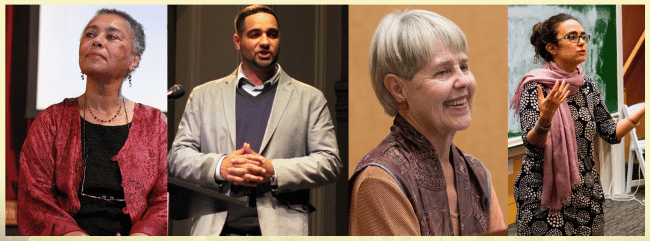
Close to 300 educators attended the Teach the Black Freedom Struggle class on Feb. 15 to learn about a new collection of Julian Bond’s lectures on the Civil Rights Movement (Time to Teach) and the long history of the voting rights struggle that led to the recent electoral victory in Georgia. This online class featured a conversation with SNCC veteran Judy Richardson, the co-editors of Julian Bond’s Time to Teach: A History of the Southern Civil Rights Movement, Jeanne Theoharis and Pamela Horowitz, and high school teacher and Rethinking Schools editor Jesse Hagopian.
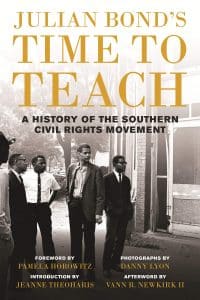 The featured book, Julian Bond’s Time to Teach, is a history of the Southern Civil Rights Movement as SNCC veteran and university professor Julian Bond (1940 – 2015) taught it for two decades, compiled from his teaching lectures. Bond had his own voting rights struggle in Georgia when the State House of Representatives refused to seat him as a state representative due to his public statements against the Vietnam War.
The featured book, Julian Bond’s Time to Teach, is a history of the Southern Civil Rights Movement as SNCC veteran and university professor Julian Bond (1940 – 2015) taught it for two decades, compiled from his teaching lectures. Bond had his own voting rights struggle in Georgia when the State House of Representatives refused to seat him as a state representative due to his public statements against the Vietnam War.
Here are a few reactions from the participants:
I learned that the Civil Rights Movement was not just popular historical figures like MLK, it was made up by students like me. I am still in college and I think for the first time I realized that the Civil Rights Movement was so much more complicated than I thought.
I was already familiar with Judy Richardson and her work with SNCC, but this was my first opportunity to hear her speak live and she blew me away!
It is important to record our movements to teach the next generation. The class spoke to the cultural power of passing down our stories.
I appreciate that after each of these sessions, I have a broader understanding of the depth of the Civil Rights Movement.
The day-to-day routines & interactions at my current school can tear me down and make me feel really weak, but woo-hoo — tonight I’m feeling a recharge!
Below, find highlights of the session, a full video recording, recommended resources, and more participant feedback.
Video
Video of the full event, except the breakout sessions.
Audio
Listen to the recording of the session on these additional platforms.
Resources
Here are many of the resources recommended by the presenters and also by participants in the chatbox.
Participant Reflections
Here are some of the responses by participants from the session evaluation.
What was the most important thing (story, idea) you learned today?
Thinking about the master narrative and what can help more students at a younger age have a more clear idea of how to be an activist — and the many facets of activism.
I learned that the Civil Rights Movement was not just popular historical figures like MLK, it was made up by students like me. I am still in college and I think for the first time I realized that the Civil Rights Movement was so much more complicated than I thought.
Textbooks don’t teach that the leaders were ordinary people, and the villains are much broader than the KKK and white citizens council.
I’m just starting to learn about Julian Bond, so this was a great introduction to me for who he is and what he did!
That big change happens through many pieces, actions, components building on one another.
I learned about Julian Bond. I had not previously heard about his amazing life and the fact that he had written records of all his lectures so the world could read them is simply amazing to me.
Movements for social justice are made of so many people and that we need to counter the narrative that it was a select few who made it happen and that it was in some way linear or inevitable. There is a long line of stories and people who have worked to make progress. We need to work to help our students see their part in movements and to find agency in our curriculum.
It is important to record our movements to teach the next generation. The class spoke to the cultural power of passing down our stories.
Something that I know I will continue processing and ruminating after today’s lesson is the idea of being a good mentor to youth activists. As a “teacher,” I try not to take on the role of “expert” and instead try to focus the classroom around collectively building knowledge. I think I can improve on this approach by thinking more deeply about mentorship.
The time it takes, the value of working with only a few people, but getting started, the need for some backroom dealing at times. Mostly I loved the passionate and joyful energy of the panel, the love between you, the joy in the work no matter how long and difficult it’s been, thanks for sharing that. I sense the length of the struggle.
Judy’s take: If all the people who said they were in the movement were in the movement, then we would all be free.
The importance of grassroots work and patience in making change. Judy’s comment, “Even if your mass meeting is just a couple of people for months, keep at it,” paired with the reminder that if that groundwork is there, when people do act, like in the sit-ins, they can grow with the community that ready to step up.
I loved learning about Julian Bond bringing in his “erudite” ways to SNCC. This feels important for students to learn! Attending these sessions & hearing names over and over again of the ordinary people in the freedom struggle (Dottie Zellner, Bernice Reagan Johnson, Amzie Moore, Charlie Cobb, etc.) feels like I’m soaking in some of my own erudite to take into the classroom with me!
The fragility of history and the truth. I understand more now about why the truth is left out of so many parts of history, and why it is so important to tell more than one side of any story. It also important to tell the whole story, even the ugly parts.
It’s difficult to pick just one thing. If I had to, I would say it was learning how Julian Bond valued young people and actually taught the significance of everyone’s contributions, not just the big names.
Jeanne said something about how when we are distanced from seeing and understanding that it is people like ourselves in the movement we don’t believe we — ourselves — can be part of making the change.
What will you do with what you learned?
Read, think, and apply the ideas, texts, and questions I encountered today into my teaching and curriculum, especially as I plan for next year.
I ordered the book of Bond’s lectures to use in one course in the fall.
Share with the teachers I am working with (I work with new teachers). Bring this conversation into our anti-racist, anti-bias discussions.
Continue to highlight the everyday people that are the movements we study and the long history of fighting for change.
There’s always such limited time to focus on any given time period in a high school U.S. survey course, but this class really inspired me to make sure that what time we do have is largely focused on social history/using events as case studies, rather than focusing on individual already-famous leaders.
Continue to check and disrupt the master narrative in my teaching. Use the examples of teens from this period to inspire my students.
I will be less afraid of teaching this history the “wrong” way.
In the break-out group, our facilitator said, “would anyone remember what MLK said if no one was there? Where was the power?” I think this idea needs to guide discussion about the movement with more students to show that it was indeed a group effort as well as a non-monolithic effort.
I’ve focused a lot this year on making sure to not just talk about a hero or a leader and talk about how a movement is made up of people and I want to continue to reinforce this. I want to make sure to address that these people can be neighbors, family members, community members. Anyone can be an activist.
I will stress the cumulative nature of change and not be discouraged when folks say I’ve been working on this for the last 2 years of my 18-year-old life and nothing has changed and I am tired. I know the work must keep going.
I am excited to bring these ideas into the classroom! I have taught about Freedom Summer as an essential, grassroots CRM campaign with students using the SNCC digital gateway, and I am looking forward to bringing Bond’s perspective into that unit to shape it more deeply.
I’m refreshed after the joy in this session! So that’s one of the most helpful contributions to my instruction right now: energy! I love learning the moments from the freedom struggle + connecting with people on the sessions. I love knowing more about the people in the movement so that, as I get to know students in my classes, I can introduce them to people with whom they can relate.
I plan to embed what I learned both into my classroom and within the current local protest community in Seattle. I teach 8th US history which covers up to Reconstruction, so I do not explicitly teach the Civil Rights Movement, but I am continually working to thread together the past with the present and help students see the themes throughout history in regards to Black liberation.
I will be sharing all of this with my students, especially the insights that individuals can create a movement instead of waiting until it’s fully formed to join in.
I appreciate that after each session, I have a broader understanding of the depth of the civil rights movement. There is not one single story or entrance point, but rather so many.
What did you think of the format?
I liked hearing from experts, people who knew Julian Bond personally.
I love the framing of the pedagogy of the breakout rooms.
Everything was wonderful. Very engaging and informative. Judy, Pam, and Jeanne all blew me away with all their insights and stories.
I liked the ease of the conversation between the presenters, also the time to reflect and process with people in the breakout room.
Great format — breakouts always a highlight — but speakers are always fabulous! Tonight we were able to hear from some real foot soldiers of the movement — so inspiring.
It was very convenient to do this virtually. I enjoy the introduction with the speakers who had first-hand experience with Julian Bond. The breakout room was a bit short, we barely got through introductions and had time to speak to one of the questions.
I appreciated the suggestion that people be equitable in breakouts: everybody talks once before anybody talks twice. Appreciated interactions between Jeanne, Pam, and Judy as well as the emcee whose name I didn’t catch as I logged in a few minutes late.
Y’all did a great job! I liked the big group, small group, big group approach. Break-out rooms were a good length for me because we weren’t very talkative.
This class was very well organized and implemented. I think everything went smoothly. I loved all of the presenters. The breakout session went well. Perfect amount of time for discussion. Too much time can be intimidating, especially when you haven’t had a chance to prepare for discussion in advance. The breakout session was “low-pressure.”
It worked well overall from my perspective in light of the timing constraints. Thank you for all the work that goes into facilitating this kind of online event.
I believe all aspects of the presentation were very nice. The breakout room was fun, because it is awesome to see people from all over the country coming together and sharing ideas.
Everything was “just right,” because, at least I, was left both wanting more, and saying “I can’t wait to share with my students & my colleagues what I learned tonight.
There will never be enough time so I won’t comment on it. I think it would be cool to incorporate jamboards or something similar so we can start creating as educators while in a breakout room. I think the group size was perfect, we had 7 people in my room.
Super great, challenged myself to stay on in the breakout room and so glad I did. My only feedback is that not being super familiar with Julian Bond’s work made it hard to answer the first question. Our conversation was much more fluid when we got to the second, and we could have just had one q because of time.
The problem was that we were asked to talk about his life without having read the book or anything about him before attending, so we were stuck rephrasing random anecdotes from the speakers.
The format was ideal, although I would have definitely appreciated more time discussing with my breakout group.
Additional Comments
Thank you for making this open to everyone, not just educators <3
I was already familiar with Judy Richardson and her work with SNCC, but this was my first opportunity to hear her speak live and she blew me away!
Thanks so much for making this happen! It was an honor to listen to the speakers. I feel more connected to the movement.
It was really, really such a special opportunity to hear from Judy Richardson and Pamela Horowitz.
Thank you so much for putting on this series! You all inspire and help me to be a better facilitator in my students’ journeys and social justice work.
Thank you so much for having this event. It was a great honor to be in the space with these legends of the movement and to hear their stories firsthand.
Breakout 17 was well-facilitated. Thank you for the links. I have saved the photo. I wonder if Gloria House or Robert Moses were in it. The panelists and facilitator were excellent. An entire lifetime of activism! OMG. Yes, children need to know. YOU ARE the FUTURE!
I loved Judy’s quote: “If everyone who says they were in the movement were in the movement, we’d be free by now.”
Thank you for continuing to organize these events and broadening my understanding of history so that I can bring it to my scholars in the classroom.
Thank you! It’s always great to see people & connect over meaningful topics. Especially true for me at this time because I need to be with “colleagues” like the educators in these sessions who are really working in ways that make a difference. The day-to-day routines & interactions at my current school can tear me down and make me feel really weak, but woo-hoo — tonight I’m feeling a recharge!
I don’t remember my breakout room number. But Ursula was my facilitator. She was AMAZING. Ursula gave me a confidence booster, as I am not a teacher. She shared that based on what I’m doing, I don’t have to be in a “classroom,” because I am a teacher. For sure, teaching is my passion. I love working with the youth at my church. Helping learn the value of their voices and how they can affect change.
Thank you for another outstanding course, that offered something for everyone who attended, no matter their age, their profession or their background.
It was really, really such a special opportunity to hear from Judy Richardson and Pamela Horowitz.
Thank you for continuing to organize these events and broadening my understanding of history so that I can bring it to my scholars in the classroom.
Presenters
Judy Richardson was on the staff of the Student Nonviolent Coordinating Committee (SNCC) in Georgia, Mississippi, and Lowndes County, Alabama (1963-66) and ran the office for Julian Bond’s successful first campaign for the Georgia House of Representatives. She founded the children’s section of Drum & Spear Bookstore and was children’s editor of its Press. Her SNCC involvement has always been a strong influence: in her documentary film work for broadcast and museums (including the award-winning 14-hour PBS series Eyes On the Prize, PBS’ Malcolm X: Make It Plain, and Scarred Justice: The Orangeburg Massacre 1968); and in the writing, lecturing and workshops she conducts on the history and relevance of the Civil Rights Movement. Read more.
Pamela Horowitz was one of the first lawyers hired at the Southern Poverty Law Center in 1974. She also worked as a legislative counsel with the National ACLU and then entered private practice, where she remained for the next 25 years. She currently serves on the boards of the NAACP Voter Fund and the SPLC. Over the course of her life, she worked in partnership with her late husband, Julian Bond, in multiple public, private, and academic projects and is involved in several activities honoring his legacy.
Jeanne Theoharis is a distinguished professor at Brooklyn College. She is the author or co-author of nine books and numerous articles on the Civil Rights and Black Power movements and the politics of race and education. Her books include the award-winning titles The Rebellious Life of Mrs. Rosa Parks, The Rebellious Life of Mrs. Rosa Parks: Young Readers Edition, and A More Beautiful and Terrible History: The Uses and Misuses of Civil Rights History.
Jesse Hagopian is a U.S. history teacher at Garfield High School and on the staff of the Zinn Education Project. Hagopian is a Rethinking Schools editor and is the editor and co-editor of a number of books including More Than a Score: The New Uprising Against High-Stakes Testing, Teaching for Black Lives, and more. He plays a lead role at the Zinn Education Project in the Teach the Black Freedom Struggle campaign. Read more at Jesse’s website, I Am An Educator.

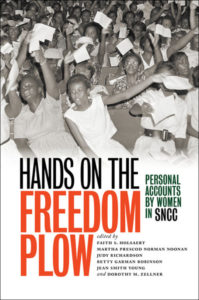
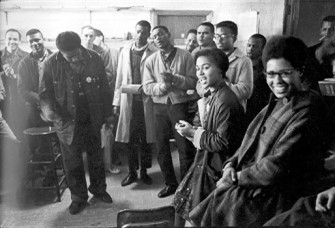
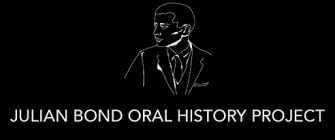
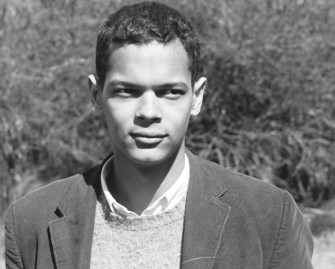
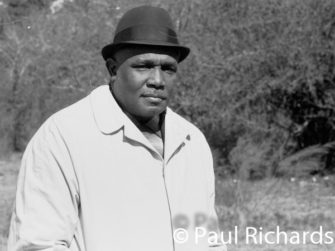
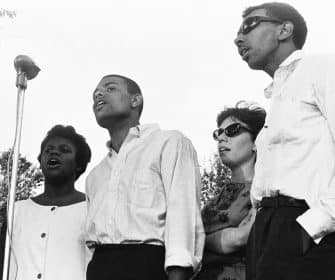
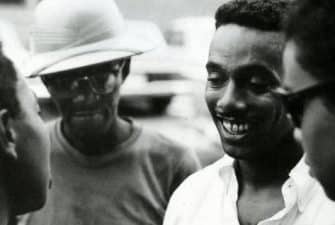

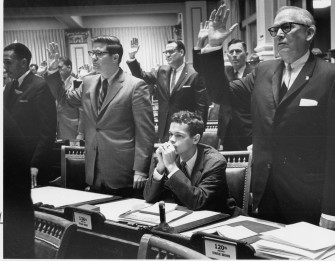
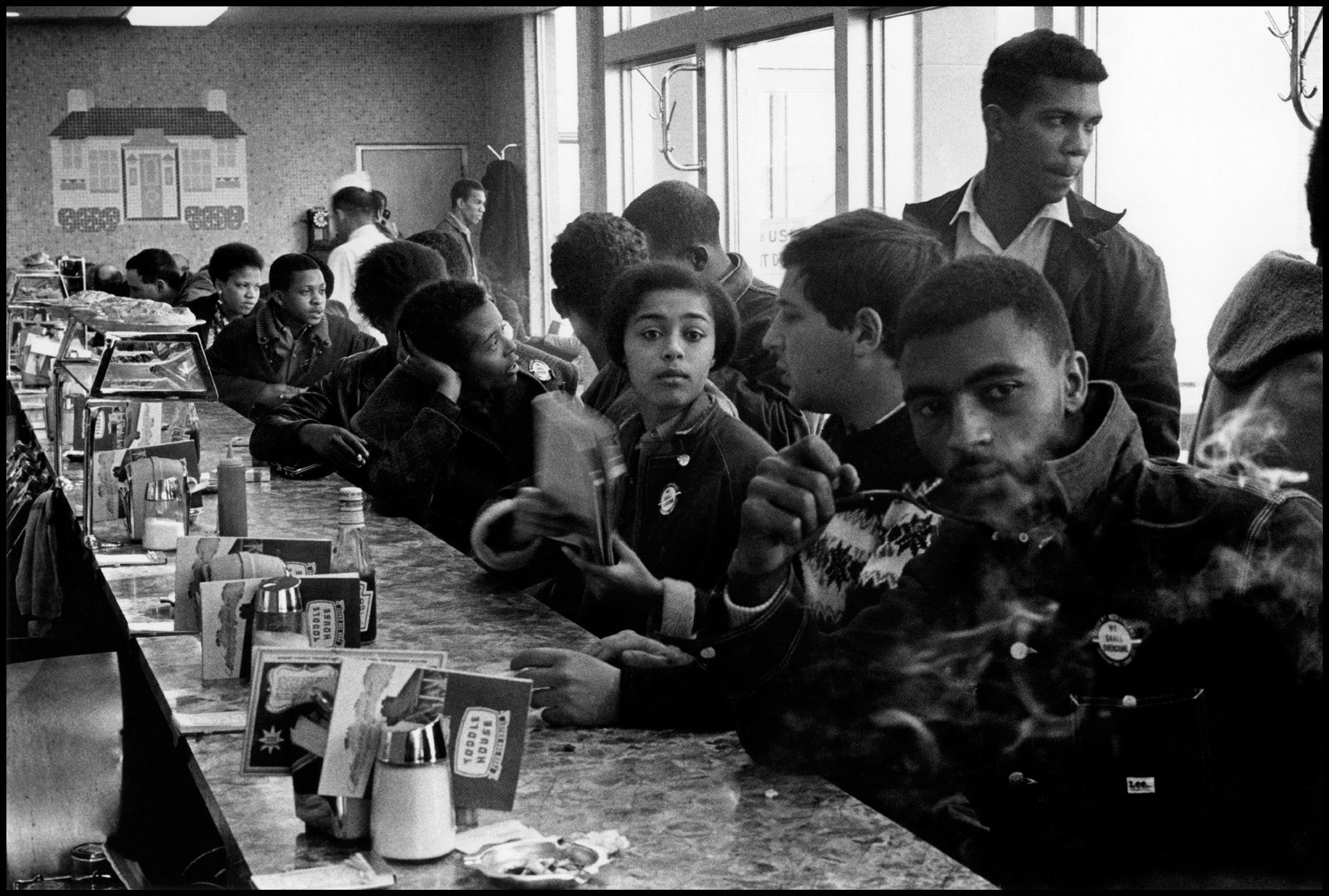
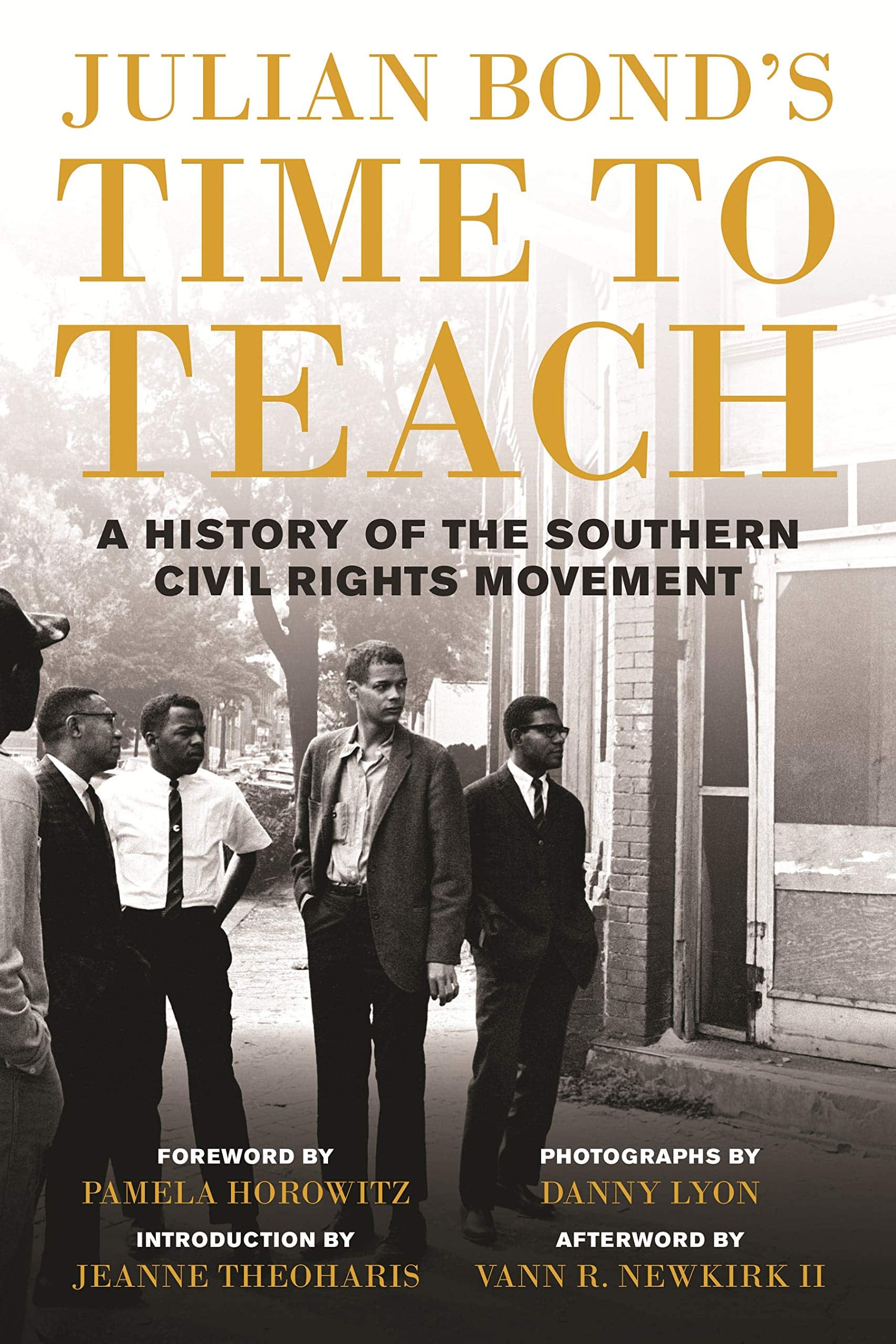
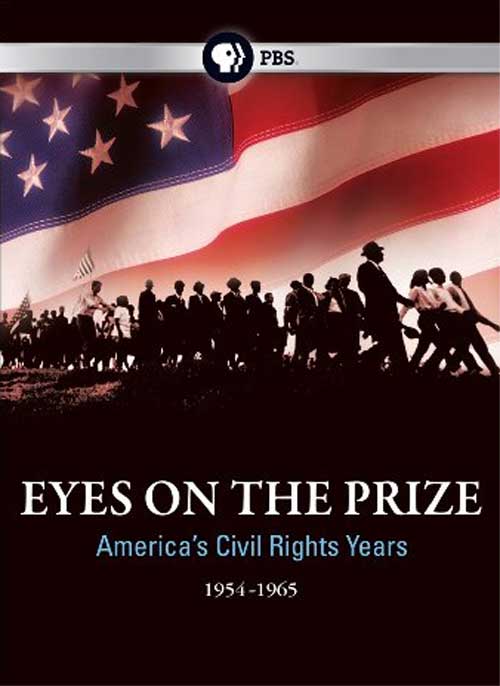

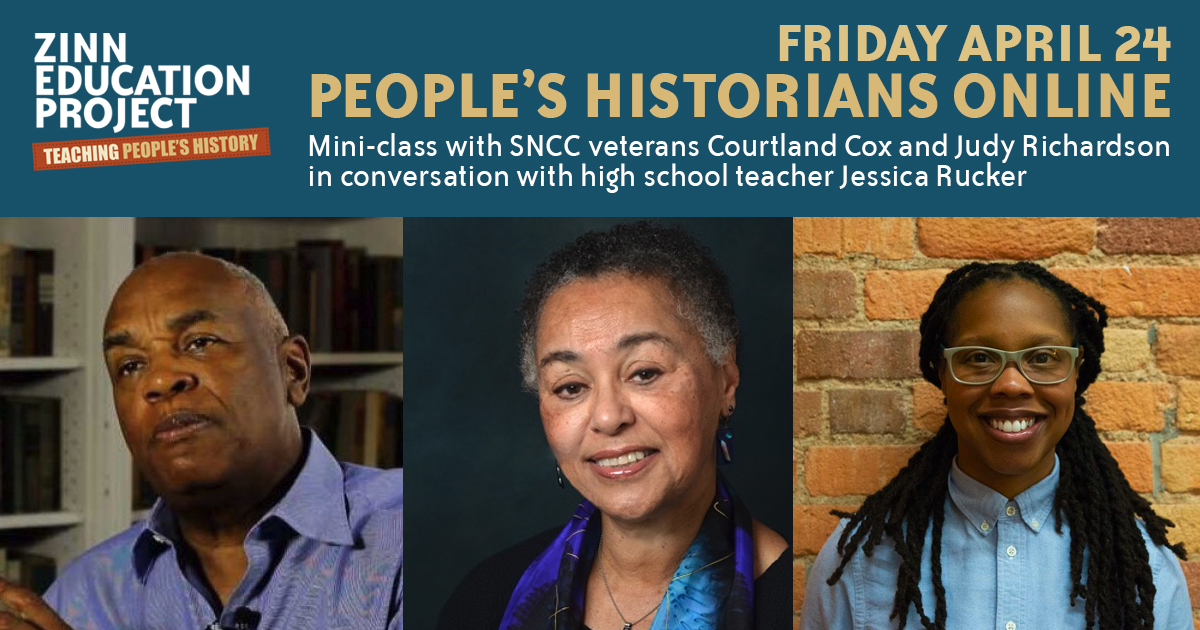
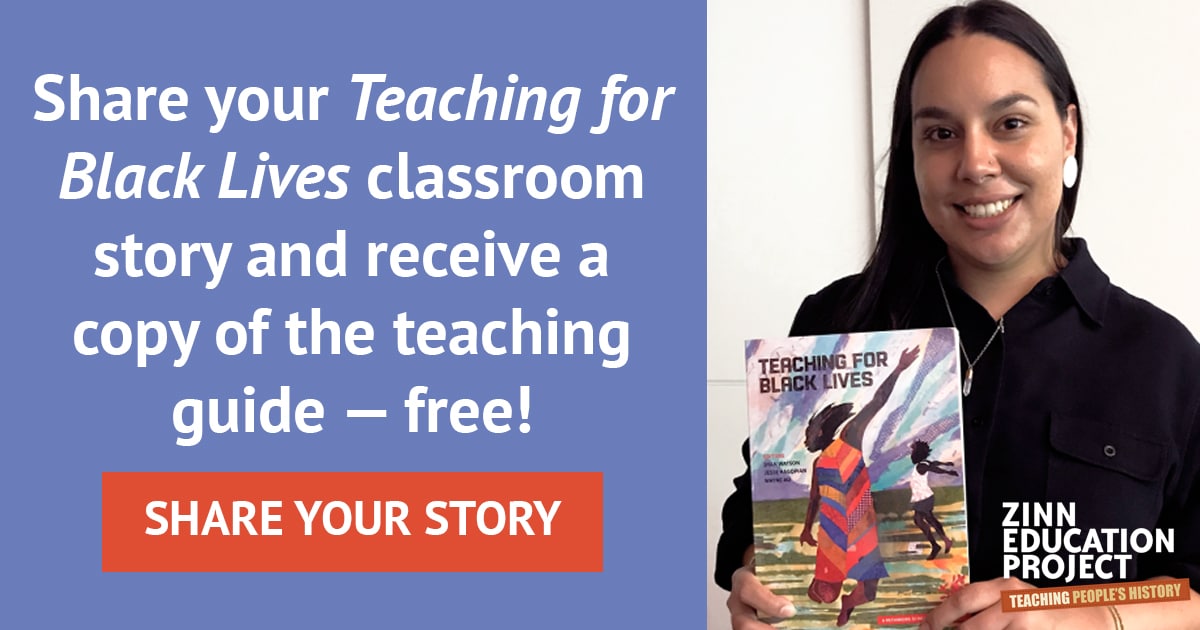





Twitter
Google plus
LinkedIn